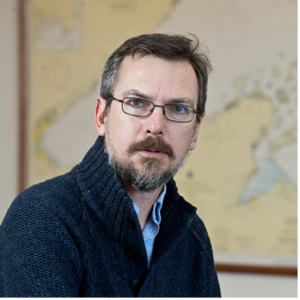
Program subject to change.
Updated 15 August 2022
Lakes in a Warming World: Perspectives From Large to Small
We live in a warming world, and lakes are among the sentinel systems that provide us with insight and evidence of the geographic distribution of this warming. This is true across spatial scales, from small lakes to large, and across geographies, with warming lakes observed around the world. However, these trends can be masked to an extent by natural year-to-year variability, making long, consistent records of temperature invaluable. As a specific example, Lake Superior, with particularly long datasets to describe aspects of its response, can be used to explore connections between seasons that amplify its response to long-term climate warming. Other recent work has taken a global perspective to this problem, standardizing datasets collected in lakes worldwide, and using lakes as a global “climate antenna”, showing that warming trends are not limited to one or even a few lakes worldwide- this is a global phenomenon, and understanding the variability of warming rates between lakes is an area of active research. Finally, lakes play a significant role in cultures around the world, and we will explore some of the ways that warming trends are changing how humans interact with lakes.
Jay Austin is a physical limnologist (the study of inland water bodies), specializing in observational approaches to develop a better understanding of physical processes in deep lakes. He has wide-ranging interests across a broad range of temporal and spatial scales, including winter structure and processes, the role of ice, springtime convection, the response of large lakes to climate change, and the impact of physical processes on ecosystem function. He has undergraduate degrees in Math and Physics and did his graduate work in the Joint Program in Physical Oceanography at MIT and the Woods Hole Oceanographic Institution. He has been at UM Duluth since 2005, serving in both the Department of Physics and Astronomy and the Large Lakes Observatory.

